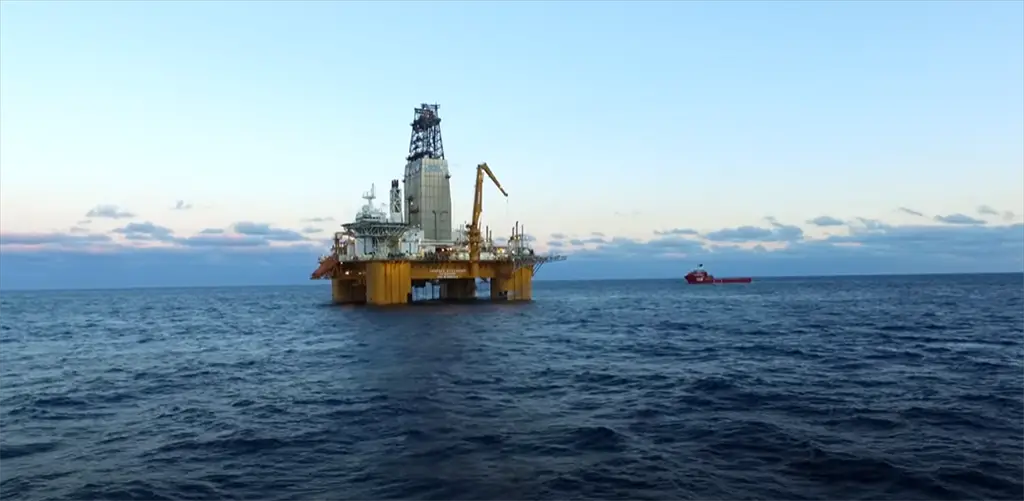A “Significant” gas condensate discovery has been made by Total and its partners on the Luiperd prospect, located on Block 11B/12B in the Outeniqua basin, approximately 175 km off the southern coast of South Africa.
The partnership had drilled the Luiperd prospect down to 3 400 m when they encountered 73 m of net gas condensate pay in “well-developed and good-quality” Lower Cretaceous reservoirs.
Also Read: Thabametsi coal-fired power plant project in South Africa suffers a setback
In a statement Total’s upstream head Arnaud Breuillac said that they are very pleased with this discovery and its very encouraging results, which prove the world-class nature of this offshore gas play. “This discovery and the successful seismic acquisitions will help to progress development studies and engage with South African authorities regarding the possible conditions of the gas commercialization,” he explained.
The Block 11B/12B covers an area of 19 000 km2, with water depths ranging from 200 m to 1 800 m. It is operated by Total with a 45% working interest, alongside Qatar Petroleum with 25%, CNR International with 20%, and Main Street, a South African consortium, with 10%.
Possibility to kick start the country’s gas-to-power program
South Africa’s new-found gas condensate resources in the Outeniqua basin are expected to kick start the country’s gas-to-power program and help replenish gas supply to the Mossel Bay gas-to-liquids plant. The government of the Southern Africa country has previously voiced concerns that the PetroSA GTL plant at Mossel Bay could run out of natural gas within two years when the existing offshore reserves dry up.
If the production from the finds is used as a feedstock for its gas-to-power plants, this will reduce or eliminate the need for the country to import LNG or construct additional pipelines from the neighboring republic of Mozambique.
South Africa has been seeking foreign investors to back the country’s first LNG import terminal to underpin a planned major expansion of gas-fired power generation in a bid to lower its existing dependence on coal and diesel-fired plants. The country’s power generation is dominated by coal which accounts for more than 80% of the total power output.

